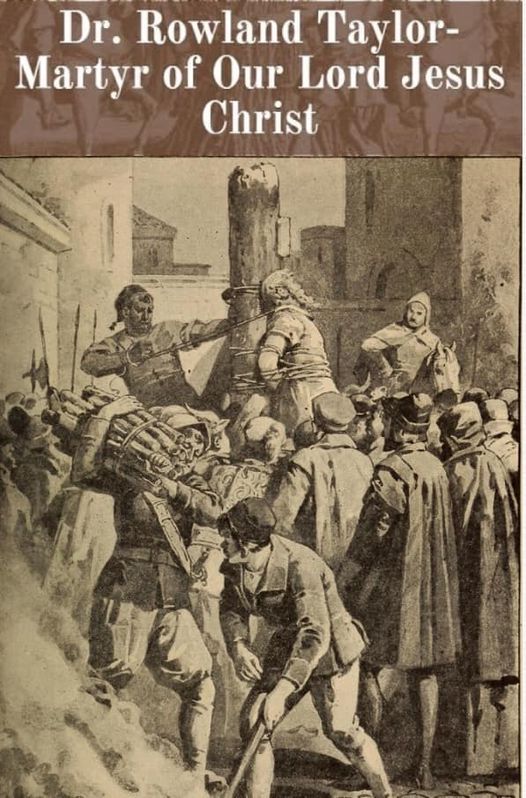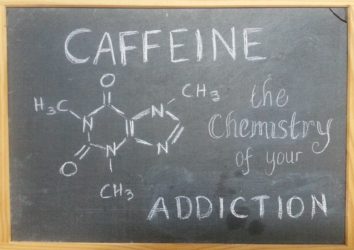
Content credited to: https://www.facebook.com/CompletelyCommittedChristian
🌷REFORMATION MONTH 🌷 Rowland Taylor, (October 6, 1510-February 8, 1555), was an English Protestant martyr during the Marian Persecutions. He was burned alive at the stake on Aldham Common, close to his own parish, the same day that Hooper died at Gloucester, on Friday, the 9th February, 1555. At the time of his death by burning at the stake, he was Rector of a small parish in a market town, Hadleigh in Suffolk. Rowland Taylor was a great friend of Cranmer, and a doctor of divinity and calnon law. But that he was a man of high standing among the Reformers is evident, from his being ranked by his enemies with Hooper, Rogers, and Bradford. In the late 1530s Taylor served as Hugh Latimer's chaplain. When Hugh Latimer resigned, Taylor was taken under the wing of Thomas Cranmer, living with him and (1539) serving as his chaplain. He was ordained by Cranmer and admitted to the parish church of St. Swithin's in Worcester. He was thus given his licence to preach and did so in the diocese of London. In 1543 the English Parliament banned Tyndale's English version of the Bible and also banned all public reading of the Bible by laymen. Religious persecution of Protestant clergy, especially by Roman Catholics, intensified in Britain at this time. July 1553 was an ominous month for Anglican clergy in England. After several years of separation from Roman worship and governance, the accession of Mary I in 1553 and her immediate reversion to Roman Catholic rule in obedience to the pope (an attempt to turn back the Reformation of the English church) led her to unleash her wrath upon those whom she defined as treasonably minded heretics. Taylor's troubles began on July 25, 1553. He was arrested just six days after the new queen, Mary I (Bloody Mary) ascended the throne. Aside from the fact that Taylor had supported Lady Jane Grey, Mary's rival, he was also charged with heresy for having preached a sermon in Bury St Edmunds denouncing the Roman Catholic practice of clerical celibacy, which required that a priest in holy orders be unmarried. This teaching is not found in the Bible. Catholics added this to their belief system in the year 1139. Many English clergymen, including Taylor, had abandoned this teaching since the 1530s as a token of the English Reformation. Taylor also denounced the Roman Catholic doctrine of transubstantiation, which is the belief that the two elements (bread and wine) taken during Holy Communion, or the Eucharist, actually become the body and blood of Jesus Christ. Nowhere in holy Scripture is this taught. The Catholic Church added this to their belief system around the year 1215. This teaching was opposed universally by the Reformed and Protestant Churches. For reasons relating to the problem of idolatry, Taylor also took issue with the Roman Catholic form of the Mass and received much support from the villagers of Hadleigh. The unScriptural "Mass celebration" was added by the Catholic Church around the year 500. Striking was the reply which he made to his friends at Hadleigh, who urged him to flee, as he might have done, when he was first summoned to appear in London before Gardiner — “What will you have me to do? I am old, and have already lived too long to see these terrible and most wicked days. I believe before God that I shall never be able to do for my God such good service as I may do now!” On 22 January 1555, Rowland Taylor (vicar or rector of Hadleigh) and several other clergy, including John Hooper, were examined by a commission of leading bishops and lawyers. Taylor gave a fervent defence of clerical marriage, which put him at odds with the Roman Catholic Church. On 29 January 1555, Taylor was brought before Gardiner again at St Mary's. The next day he was excommunicated and sentenced to death. He was stripped of his clerical garments in a symbolic manner, and offered a last supper with his family. His reaction to his accusers was this: "And although I know, that there is neither justice nor truth to be looked for at my adversaries hands, but rather imprisonment and cruel death: yet know my cause to be so good and righteous, and the truth so strong upon my side, that I will by God's grace go and appear before them and to their beards resist their false doings." Rowland Taylor also said: “The second cause why I was condemned as a heretic was that I denied transubstantiation, and concomitation, two juggling words whereby the Papists believe that Christ’s natural body is made of bread, and the Godhead by and by to be joined thereto — so that immediately after the words of consecration, there is no more bread and wine in the sacrament — but the substance only of the body and blood of Christ.” “Because I denied the aforesaid Papistical doctrine (yes, rather plain, wicked idolatry, blasphemy, and heresy) I am judged a heretic.” The proceedings against Taylor ran over several years. During this time he was kept in the King's Bench Prison. While in prison he befriended many inmates and was instrumental in many conversions to Protestantism. When he was put in prison he was the father of nine children. Striking and deeply affecting was his last testament and legacy of advice to his wife, his family, and parishioners, though far too long to be inserted here, excepting the last sentence — “For God’s sake beware of Popery! For though it appears to have in it unity — yet the same is vanity and Antichristianity, and not in Christ’s faith and truth.” He was sent down from London to Hadleigh, to his great delight, to be burned before the eyes of his parishioners. When he got within two miles of Hadleigh, the Sheriff of Suffolk asked him how he felt. “God be praised, Master Sheriff,” was his reply, “never better! For now I am almost at home. I lack but just two stiles to go over, and I am even at my Father’s house!” As Taylor was taken back to Hadleigh, where his wife awaited him in the early morning hours at St Botolph's churchyard, they exchanged a few last brief words and Margaret promised to be present for his burning in a couple of days. That same day, Taylor was handed over to the sheriff of Essex at Chelmsford. Before he was handed over, he spoke these words to his family: "I say to my wife, and to my children, The Lord gave you unto me, and the Lord hath taken me from you, and you from me: blessed be the name of the Lord! I believe that they are blessed which die in the Lord. God careth for sparrows, and for the hairs of our heads. I have ever found Him more faithful and favourable, than is any father or husband. Trust ye therefore in Him by the means of our dear Saviour Christ's merits: believe, love, fear, and obey Him: pray to Him, for He hath promised to help. Count me not dead, for I shall certainly live, and never die. I go before, and you shall follow after, to our long home." As he rode through the streets of the little town of Hadleigh, he found them lined with crowds of his parishioners, who had heard of his approach, and came out of their houses to greet him with many tears and lamentations. To them he only made one constant address, “I have preached to you God’s Word and truth — and have come this day to seal it with my blood.” On coming to Aldham Common, where he was to suffer, they told him where he was. Then he said, “Thank God, I am even at home!” Following Rogers on 4 February and Saunders on 8 February, Taylor became Mary's third Protestant to be burned at the stake. His execution took place on 9 February 1555, at Aldham Common just to the north of Hadleigh. His wife, two daughters, and his son Thomas were present that day. His final words to his son Thomas, as reported by Foxe: Almighty God bless thee, and give you his Holy Spirit, to be a true servant of Christ, to learn his word, and constantly to stand by his truth all the life long. And my son, see that thou fear God always. Fly from all sin and wicked living. Be virtuous, serve God daily with prayer, and apply thy boke. In anywise see thou be obedient to thy mother, love her, and serve her. Be ruled by her now in thy youth, and follow her good counsel in all things. Beware of lewd company of young men, that fear not God, but followeth their lewd lusts and vain appetites. Flee from whoredom, and hate all filthy lying, remembering that I they father do die in the defense of holy marriage. And another day when God shall bless thee, love and cherish the poor people, and count that thy chief riches to be rich in alms. And when thy mother is waxed old, forsake her not, but provide for her to thy power, and see that she lacks nothing. For so will God bless thee, give thee long life upon earth, and prosperity, which I pray God to grant thee." When he was stripped to his shirt and ready for the stake, he said, with a loud voice, “Good people, I have taught you nothing but God’s Holy Word, and those lessons that I have taken out of the Bible; and I am come hither to seal it with my blood!” He would probably have said more, but, like all the other martyrs, he was strictly forbidden to speak, and even now was struck violently on the head for saying these few words. He then knelt down and prayed, a poor woman of the parish insisting, in spite of every effort to prevent her, in kneeling down with him. After this, he was chained to the stake. After some painful delay and some miserable insults from the Popish helpers who were assisting, the fire was lighted. A local butcher was ordered to set a torch to the wood but resisted. A couple of bystanders finally threw a lighted torch onto the wood. He repeated the 51st Psalm, and crying to God, “Merciful Father, for Jesus Christ’s sake, receive my soul into Your hands!” stood quietly amidst the flames without crying or moving, until perhaps sympathetic guard, named Warwick, struck Taylor's head with a halberd, which apparently killed him instantly. The fire consumed his body shortly thereafter. And so this good old Suffolk incumbent passed away. That same day, John Hooper was burned at the stake in Gloucester. Of all the stupid and suicidal mistakes that the Romish Church ever made, none was greater than the mistake of burning the Reformers. It cemented the work of the reformation and made Englishman Protestants by the thousands. When plain Englishman saw the church of Rome so cruelly wicked and Protestants so brave, they ceased to doubt on which side was the truth. May the memory of our martyred Reformers never be forgotten until the Lord comes!"

